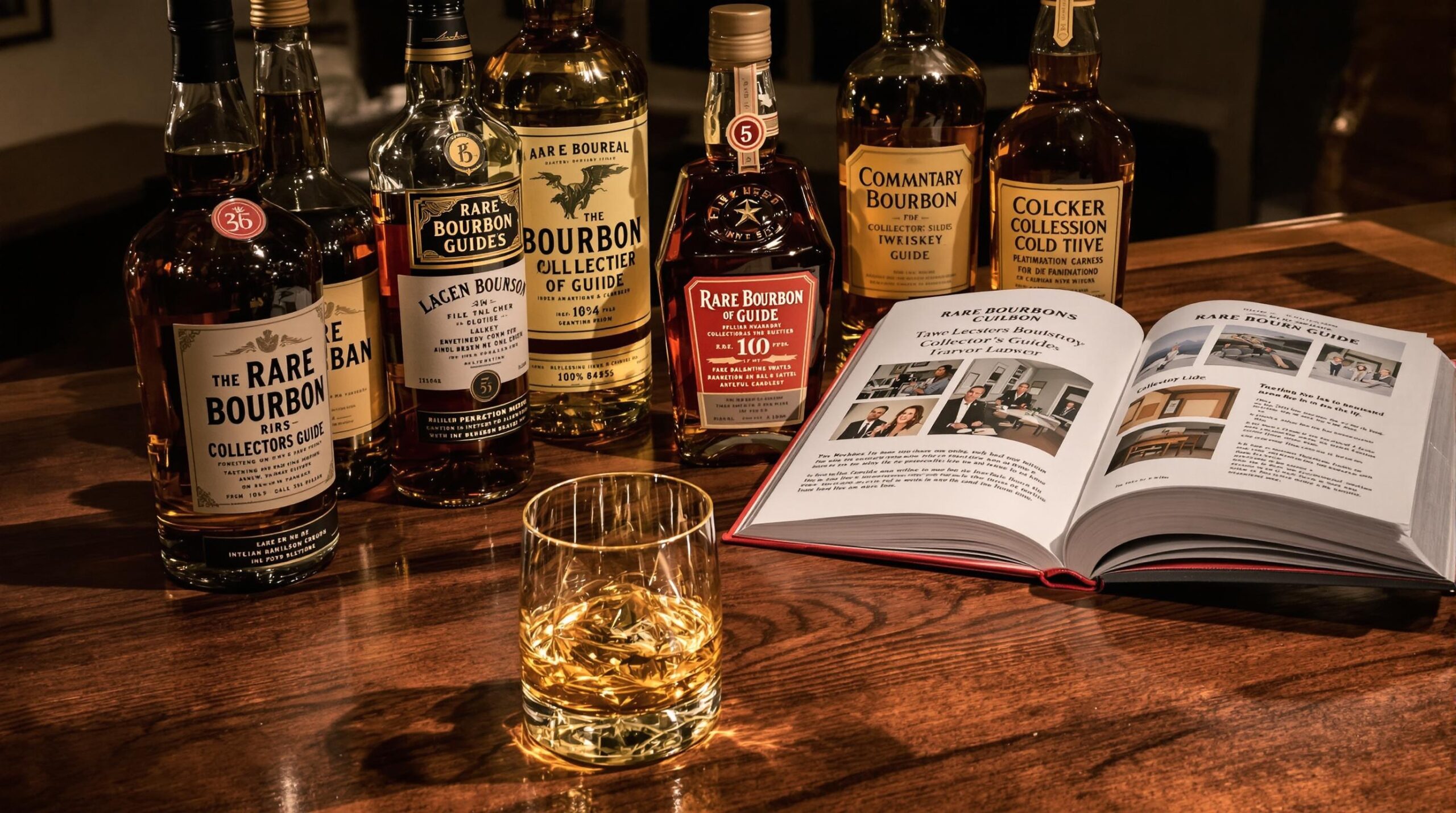Investing is crucial to building wealth and securing financial stability. Traditionally, stocks, bonds, and real estate are popular investment avenues. However, as global markets evolve, investors seek diversity and unique opportunities. One such burgeoning market is the collection of rare bourbon.
Understanding the Appeal of Rare Bourbon
Rare bourbon offers a distinct investment opportunity. This allure stems from its rich history, limited production, and ever-growing demand, making it a desirable asset for collectors and investors alike. As with any investment, it’s important to understand the fundamentals and unique dynamics of the market.
Bourbon’s appeal is partly due to its historic roots in American culture. Often referred to as “America’s Native Spirit,” bourbon must meet strict legal requirements. These conditions preserve its authenticity and quality, adding to its collectible nature. Collectors appreciate this adherence to tradition, making rare bourbons highly sought after.
The Growing Market for Rare Bourbon
Over the last decade, the market for rare bourbon has expanded significantly. Consumer interest in high-quality spirits drives this growth. Craft distilleries have entered the scene, creating limited-edition and small-batch releases. These exclusivities further fuel the rarity and investment potential of certain bottles.
Auctions dedicated to rare spirits frequently see bourbon bottles selling for thousands of dollars. The prices continue to rise as collectors and investors vie for limited stock. Thus, bourbon offers an alternative investment largely unaffected by traditional market fluctuations.
Many investors compare bourbon to fine wine. Both require patience and knowledge to maximize potential returns, making them appealing to discerning investors. These spirits often appreciate over time, making them valuable additions to diverse portfolios.
Key Factors Influencing Investment Decisions
When investing in rare bourbon, consider several factors to make informed decisions. Understanding these elements can maximize returns and minimize risks in your investment strategy.
Firstly, provenance is critical. Knowing a bottle’s history and origin helps verify its authenticity. This knowledge is essential, as counterfeit bottles can sometimes enter the market. Always purchase from reputable sources to safeguard your investment.
Secondly, condition matters significantly. Well-preserved bottles with intact labels maintain their potential value over time. Fluctuations in temperature and humidity can damage or degrade the spirit. Proper storage and handling are fundamental in preserving your investment’s future worth.
Lastly, consider the producer and rarity of the bourbon. Some distilleries hold legendary status among enthusiasts. Their rare releases, minimal editions, and discontinued lines often skyrocket in value.
Building a Diverse Collection
Diversification is key to any successful investment portfolio. When investing in rare bourbon, apply similar principles. A mix of established brands, emerging craft distilleries, and small-batch releases can enhance your collection.
Emerging distilleries offer exciting opportunities for savvy investors. These new players often produce limited quantities, driving demand and appreciation over time. Following industry trends and trusted publications can help identify promising names to include.
Established brands frequently release special editions or collaborate with notable figures. These strategic releases often yield high returns, especially when bottle quantities are minimal.
Strategic Buying: Auctions, Retailers, and Direct Purchases
Acquiring rare bourbon requires strategy. Buyers should consider auctions, specialty retailers, and direct purchases when building their portfolios. Each avenue has unique benefits and potential challenges to consider.
Auctions provide access to an array of rare bottles and vintages and create opportunities for connecting with fellow enthusiasts. However, competition can drive prices higher, necessitating a well-prepared budget.
Specialty retailers offer curated selections of rare bourbons. They can also provide expert guidance for both seasoned collectors and newcomers. These shops often have established networks with distilleries, ensuring authenticity and quality.
Direct purchases from distilleries present a unique chance to procure exclusive releases. Some distilleries reserve special bottlings for visitors or members of their clubs. This exclusivity can make all the difference in finding a unique addition to your collection.
Storage and Insurance Considerations
Proper storage is essential for preserving the integrity and value of rare bourbon. The ideal storage conditions include a consistent temperature and humidity level. Protecting your investment in this way ensures its value appreciates over time.
Dedicated storage solutions, such as wine cellars or climate-controlled cabinets, are advisable. Additionally, storing bottles upright reduces risk to the cork, especially for long-term investments, maintaining the spirit’s quality.
Insurance is another way to protect your investment. Many insurers offer specific policies for high-value collections, including rare spirits. An adequate insurance policy provides peace of mind in case of damage or theft.
Legal and Ethical Considerations
As with any investment, the legal and ethical aspects of a rare bourbon collection must be considered. Staying informed about the evolving legal landscape is crucial for responsible investment.
Documentation and verification are essential, especially when reselling bottles at auction or to other collectors. Maintain thorough records of purchases to confirm provenance and substantiate value claims.
Furthermore, be mindful of ethical considerations when investing. Support distilleries that engage in sustainable practices, thus aligning your investments with positive environmental and social impact.
Long-Term Financial Outlook and Market Predictions
The outlook for rare bourbon investments remains positive, with expectations for sustained growth over the coming years. The ongoing interest in premium spirits suggests a fertile market for future opportunities. As more enthusiasts venture into collecting, demand is likely to rise.
However, the bourbon market may face challenges like economic fluctuations and regulatory changes. Stay informed about industry trends and legal shifts to adapt strategies accordingly.
Investments in rare bourbon complement traditional portfolios, offering both financial returns and personal satisfaction. Collectors gain more than just material value; they participate in preserving a rich cultural heritage.
Conclusion
Rare bourbon represents an intriguing investment opportunity, diversifying and enriching any portfolio. Its appeal stems from a compelling history, distinct production processes, and a passionate community of collectors. Investors can navigate this unique market by understanding the factors that influence value, engaging in strategic buying, and considering ethical implications. As the rare bourbon market continues to flourish, it offers investors a potentially profitable and culturally enriching venture.


